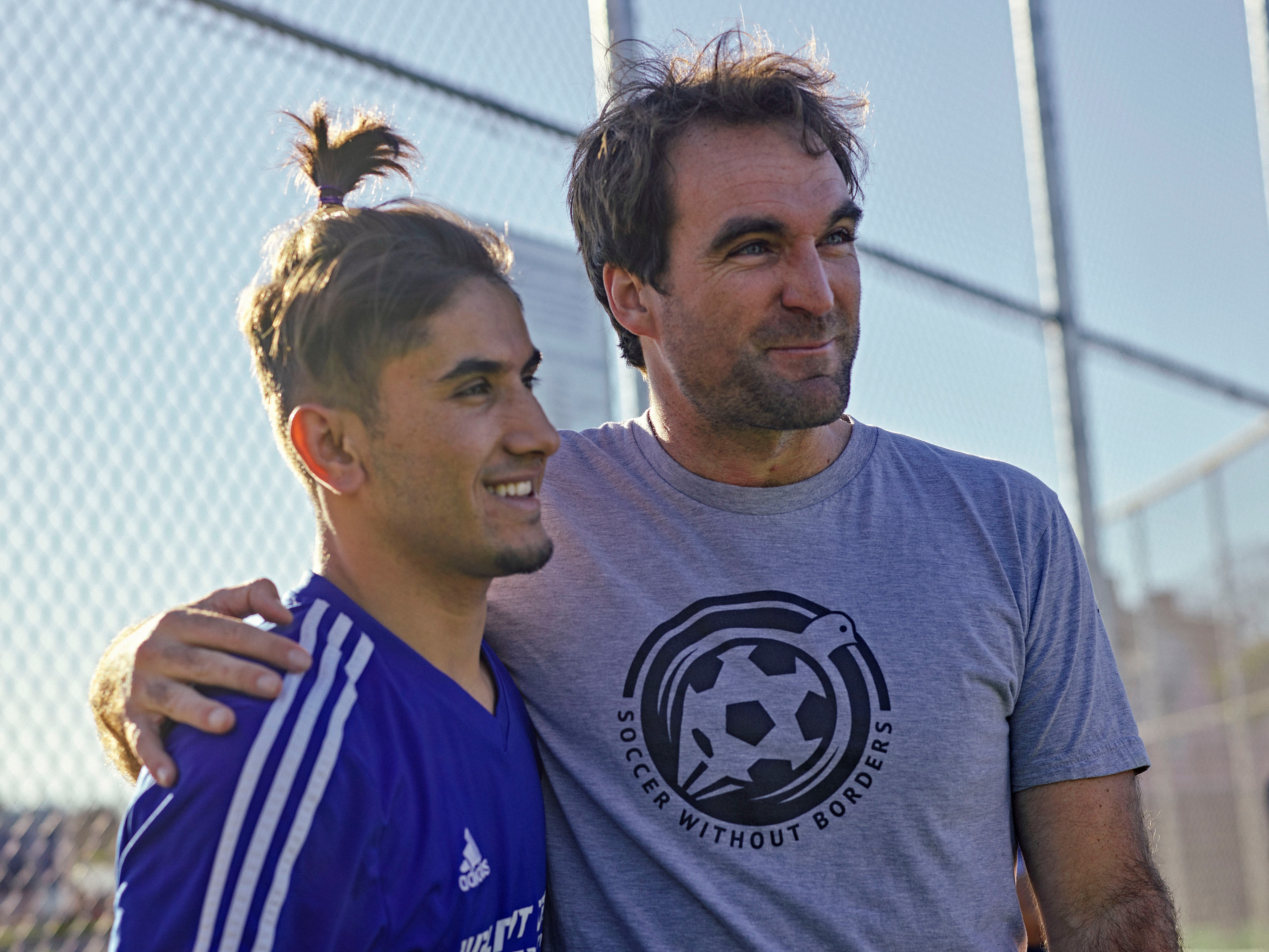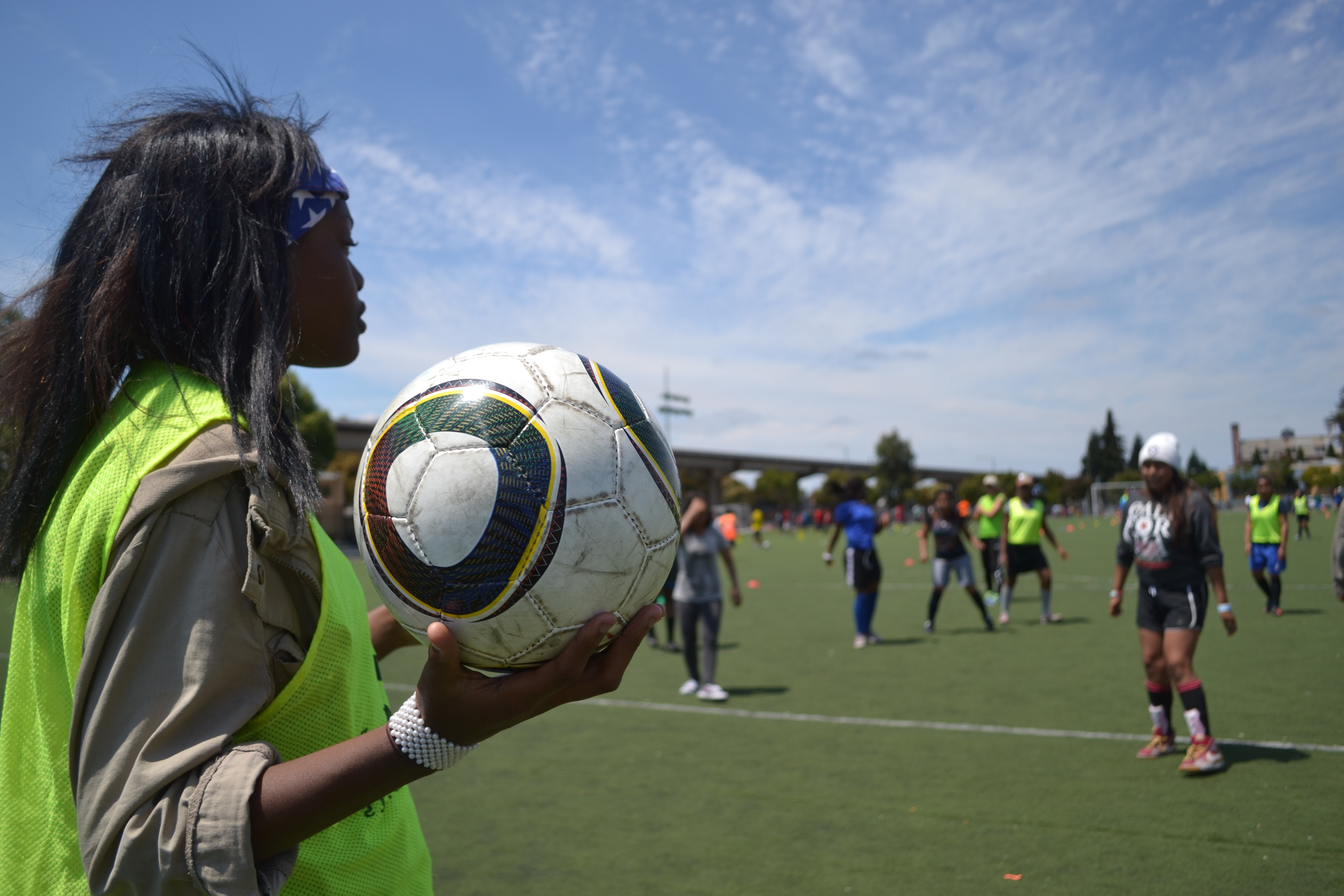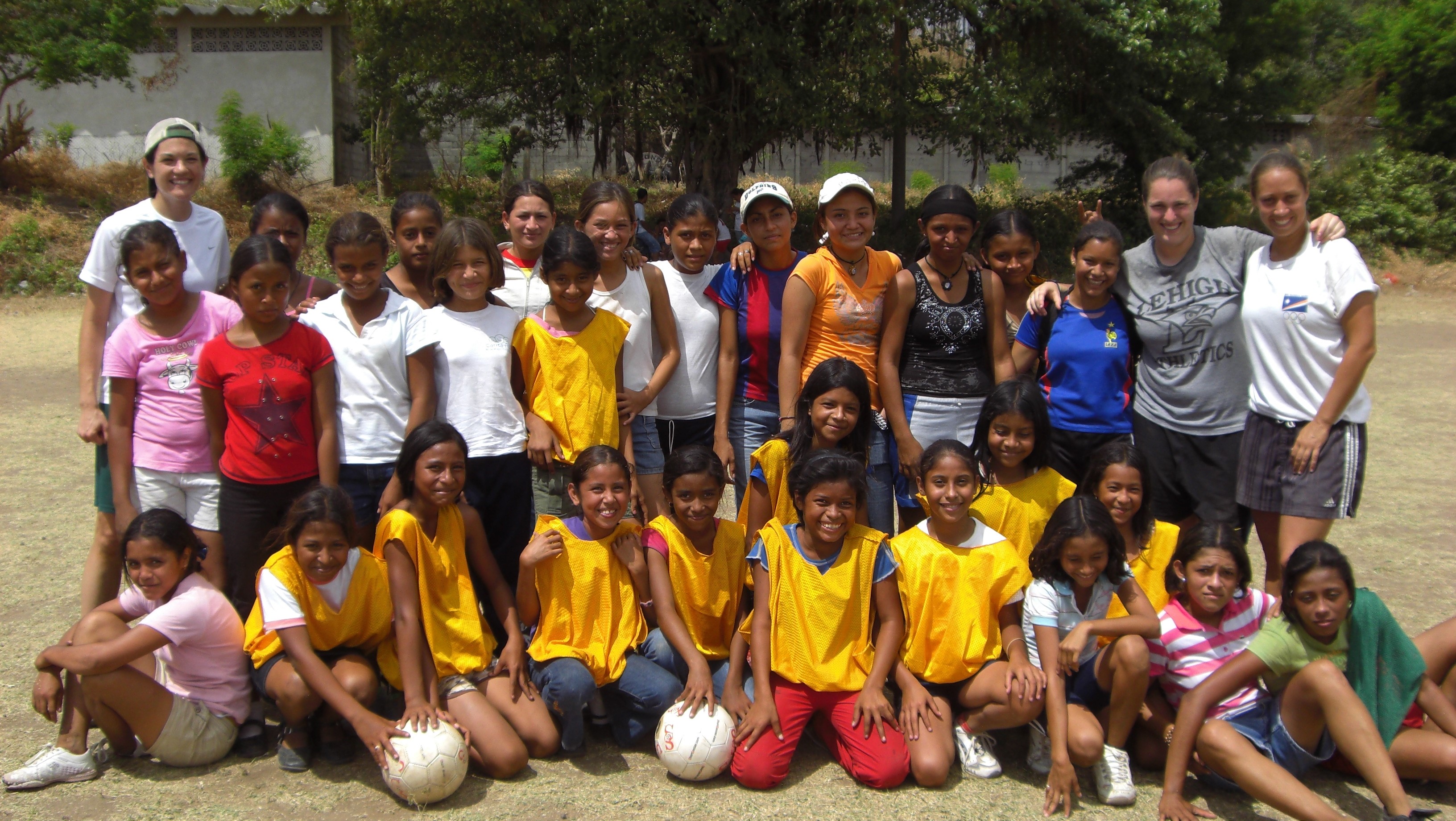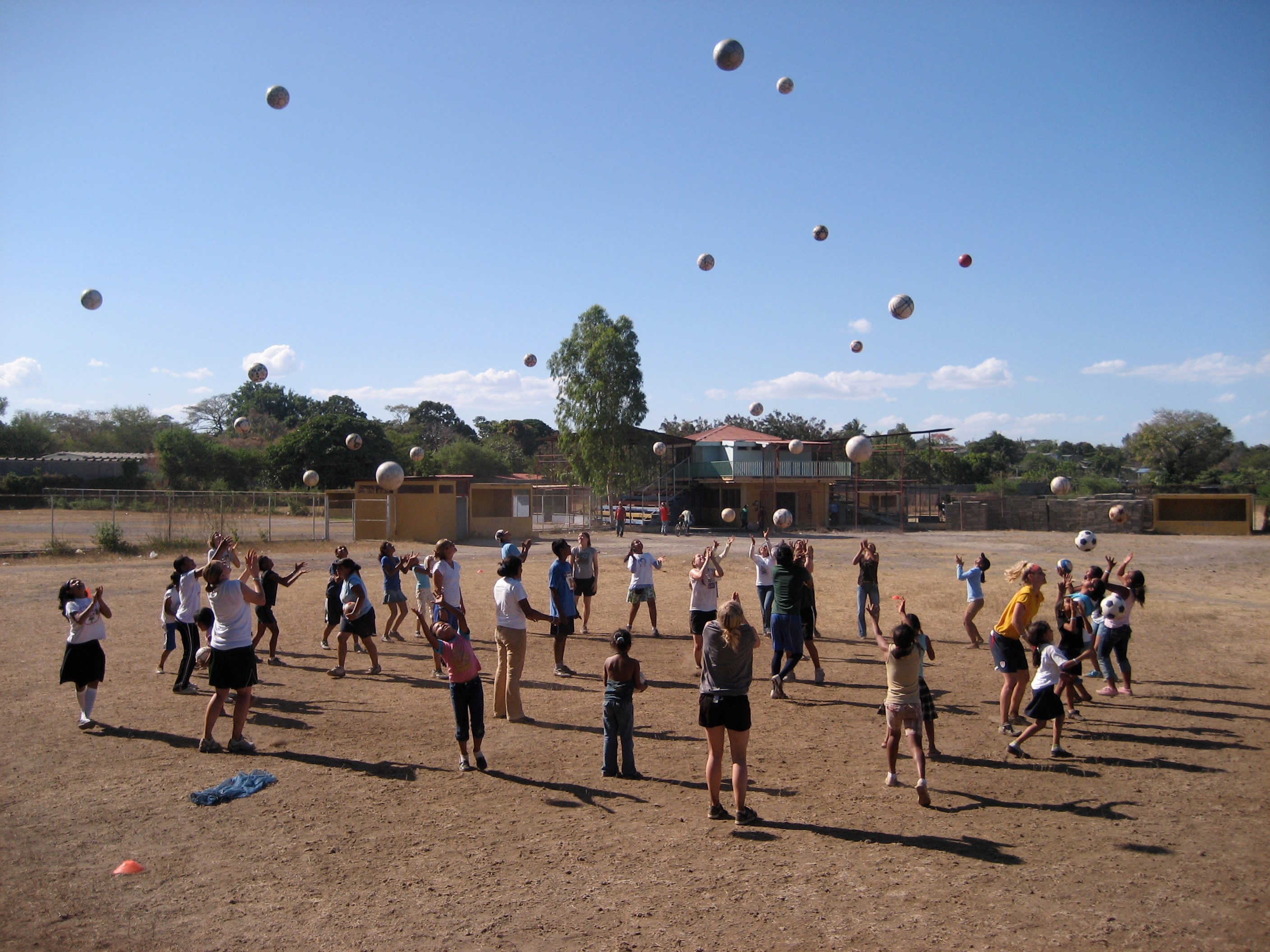Founding Story: Soccer Without Borders
A cheque from the universe to an international organisation, we explore the origins of Soccer Without Borders
For the past 13 years, Soccer Without Borders, has been providing young people who lack opportunities a chance to flourish on the football pitch.
But it was almost a very different story.
A year after founding Soccer Without Borders, Ben Gucciardi was struggling to secure funds to continue. One day, an envelope arrived in the post. It contained a check for $5,000 and a note that read: ‘Keep going, your work inspires others.’
It was signed: ‘From The Universe.’
“At the time, $5,000 was almost our entire budget; it went an extremely long way to supporting the work,” Ben said.
Long before Soccer Without Borders came into existence, Ben had known that he wanted to work with youth and to do social justice work.
His talent as a football player took him across the country to attend Lehigh University and compete in the highest University division in the United States – and it was this time at university that made him realise he didn’t want to work in a classroom environment
“I wanted to work in a setting where participation wasn’t mandatory, where youth were choosing to come,” Ben added.
“I wanted to create a programme based on the idea that we are all here because we value each other and want to work together and lift each other up.”
While the early ideas around Soccer Without Borders were forming, Ben saw a notice for an entrepreneurship contest on the University campus – the perfect chance to not only shape his ideas but to secure initial funding to turn these ideas into reality.
“The name is a tribute to the amazing work Doctors Without Borders has done over so many years,” Ben added.
“It was a name that helped to create an ideal context for people from different backgrounds and countries to work together.”
While Ben travelled in Central America in 2006 learning from other programmes it was on a local pitch near where he grew up that the first ‘real’ Soccer Without Borders programme took place.
His partner Lauren made him aware of the challenges facing new arrivals in their home city. At the time, she was working in refugee resettlement for the International Rescue Committee in Oakland, California.
“She noticed a huge gap in services for refugee children and youth,” Ben recalled. “She suggested doing a camp for those students in the summer, when many of them were isolated at home.”
In partnership with the International Rescue Committee, Soccer Without Borders held a soccer camp for youth recently resettled in Oakland with the majority from Liberia, Myanmar, Thailand and Uzbekistan.

Ben with player Haseeen M during a training session in Oakland, 2017
“We used team-building games, a low coach-to-player ratio and intentional grouping strategies to make Soccer Without Borders feel like a safe space,” Ben said.
“Many of those principles are still in use today, though they have been improved, but I consider them to be essential to what a Soccer Without Borders programme really is.”
On the first day, 20 young players arrived. The following day, five more joined them. By the end, the camp had multiplied to 50 participants.
With football, Ben hoped to use a sport that could connect young people from different backgrounds who spoke different languages and, as the camp came to an end, many participants urged Ben to continue the activities.
Later that year, Soccer Without Borders formed its first year-round team. Further teams followed and the organisation began growing at a steady pace.
For the first four years, Soccer Without Borders relied entirely upon volunteer staff. One of the first of these volunteers was Mary McVeigh, who would later become the organisation’s first Executive Director and then Co-Founder.
“It was pretty clear right away that Mary was not a typical volunteer,” said Ben. “She was so thoughtful in the questions she asked about the work, the community and her role, and also went above and beyond in terms of directing resources to the work and creating new opportunities for participants.”
Mary and Ben met at Lehigh University, where she was also a postgraduate, as well as Assistant Coach of the Women’s Soccer Team. As her time at Lehigh was coming to an end Mary was looking for a new way of working with the sport that had helped shape her.
“For me, soccer had always been about team and community, but the field of ‘football for good’ was not something I had ever heard of,” Mary said.
“I knew Ben as the guy who wanted to drive a motorcycle down to Argentina with his best friends and play soccer along the way.
“Ben’s vision of the soccer field and the soccer team as an alternative classroom really connected dots with me in ways that I hadn’t thought about before.”

Together with her and Ben’s mutual friend, Molly Luft, Mary contacted the Soccer Without Borders Founder to see how they could help.
Ben asked if they would be interested in supporting their fledgling programme in Nicaragua, which was shifting to focus more on girls. Mary didn’t need time to reflect.
“It felt like a perfect chance to pay forward some of the opportunity that I had enjoyed as a female athlete in the U.S,” Mary added.
It was the first of many trips to the country. Mary recalls one evening in Nicaragua when the power of soccer to shape communities clicked for her.
Walking with Soccer Without Borders Coach Jose Largaespada and her friend Ann Cook, also a former player from the WUSA, they stumbled upon a 3v3 street football game.
“I remember the men playing paused briefly to let us pass, but instead we asked if we could play against the winning team. They laughed at us, definitely expecting that we’d lose the next game and be off the field,” Mary recalled.
Instead, the trio won 7 games in a row.
“I watched these men go from laughing, to mocking one another, to angry, to finally just playing. I watched their beliefs about what women are capable of get shattered, and underneath it was a respect that I’m not sure we could have earned any other way.”
For Mary, that evening solidified the importance of female athlete role models. At the time, in a city of 120,000 people, there were no girls’ leagues and just a single women’s team.
Season by season, Soccer Without Borders worked to change that, recruiting women from the one team to help create pathways for girls to play, to learn, and to build their own leadership and coaching.
One of those women was Veronica Balladares, a defender and captain of the women’s team who Soccer Without Borders recruited as a coach. Veronica was studying to be a psychologist at the time and Football for Good was not viewed as a real career.
Despite working with Soccer Without Borders, Veronica couldn’t envision fully giving up her formal work pathway for a dream – she had a family relying on her and was already going against many norms to play soccer and pursue a full-time career.
But year after year, Mary knocked on her door with an offer of an expanded role and, finally in 2014, Veronica accepted a position as Co-Director of Soccer Without Borders Nicaragua.
Under her leadership, 85% of the staff are now female and more than half are alumni.

Soccer Without Borders Co-Fouunder Mary McVeigh Connor (top left) poses for a group photo at the first girls' team practice at Soccer Without Borders Nicaragua, 2008
By autumn 2010, Soccer Without Borders had grown to the point that full-time oversight was essential.
Enter the Universe again.
Weeks after recognising that the organisation needed accounting support that it couldn’t afford, an accountant named Anna Lippi offered to help Soccer Without Borders rebuild its infrastructure.
“In the United States, non-profits are some of the most highly regulated but not all of those regulations are clear,” Mary commented. “Sometimes you don’t know what you don’t know.”
Over the next two years, some difficult choices needed to be made to focus on doing fewer things and doing them well. As Soccer Without Borders was maturing, Ben and Mary’s roles were also developing.
Ben decided that this should also be reflected officially. He advocated to the organisation’s Board of Directors to award Mary the title of ‘Co-Founder’.
“It’s an accurate representation of the history of this organisation”, Ben explained. “Without her input, Soccer Without Borders may not have emerged from those early years.”
By 2015, Soccer Without Borders was back on track. The impact the organisation was having with its work in refugee communities across the United States led to Ben being honoured as a ‘Champion of Change’ by President Obama’s White House.
The following year, as the global displacement crisis was topping 60 million people, Soccer Without Borders was awarded the $250,000 Lipman Family Prize from the Wharton School of Business – one of the largest prizes for social impact in the United States.
While humbled by the recognition Ben and Mary see the organisation’s success reflected elsewhere.
“One of the most exciting developments of recent years is seeing how many programme alumni come back to serve as Soccer Without Borders coaches or coordinators,” said Ben.
One of those coaches is Jules Mayele of Soccer Without Borders Uganda. Jules fled the Democratic Republic of the Congo as an adolescent, and discovered Soccer Without Borders in his new home of Kampala. After years of participation as a student and player, Jules demonstrated a keen talent for teaching English classes to young refugees going through the same challenges he faced.

Girls at the 2011 Soccer Without Borders TEAM Camp in Nicaragua
“These alumni know intimately the challenges of current participants, and are able to serve as community navigators in addition to coaching.
“So many young people are looking for ways to serve and make a positive impact, and to see them doing that through SWB is so inspiring.”
Over the years, the Soccer Without Borders team couldn’t help but notice what seemed like an intervention form the universe just when it was needed most.
Most recently, in 2018, one of those moments took the form of Common Goal support which has since helped Soccer Without Borders advance their work in Nicaragua and Uganda.
“In Nicaragua, the investment from Common Goal could not have come at a more important time,” Mary explained.
“That year, the country experienced its worst political turmoil since the Revolution, leading to hundreds of deaths and thousands of people fleeing the country.
“Safe spaces for young people to come together are even more essential during times of instability.”
Not only did the support through Common Goal enable Soccer Without Borders to keep running, while schools and businesses were closing around them, it also lead to the establishment of girls’ programmes in three new communities.
Soccer Without Borders has transformed from an all-volunteer project to a nearly two million dollar organisation with 63 staff members and seven year-round locations, serving more than 2,800 young people in its core programmes and benefitting more than 5,000 through leagues, clinics, tournaments, and community events.
“When I think about the youth we work with,” Ben reflected, “so many of them have recently crossed borders, left so much behind, but they bring their love of soccer with them.
“When our teams play a formal 11 v 11 match, we might have youth from 10 countries on the field, speaking 7 different first languages.
“They are all able to form one unit, and play together. There are few better examples of soccer’s ability to cross borders than this.”